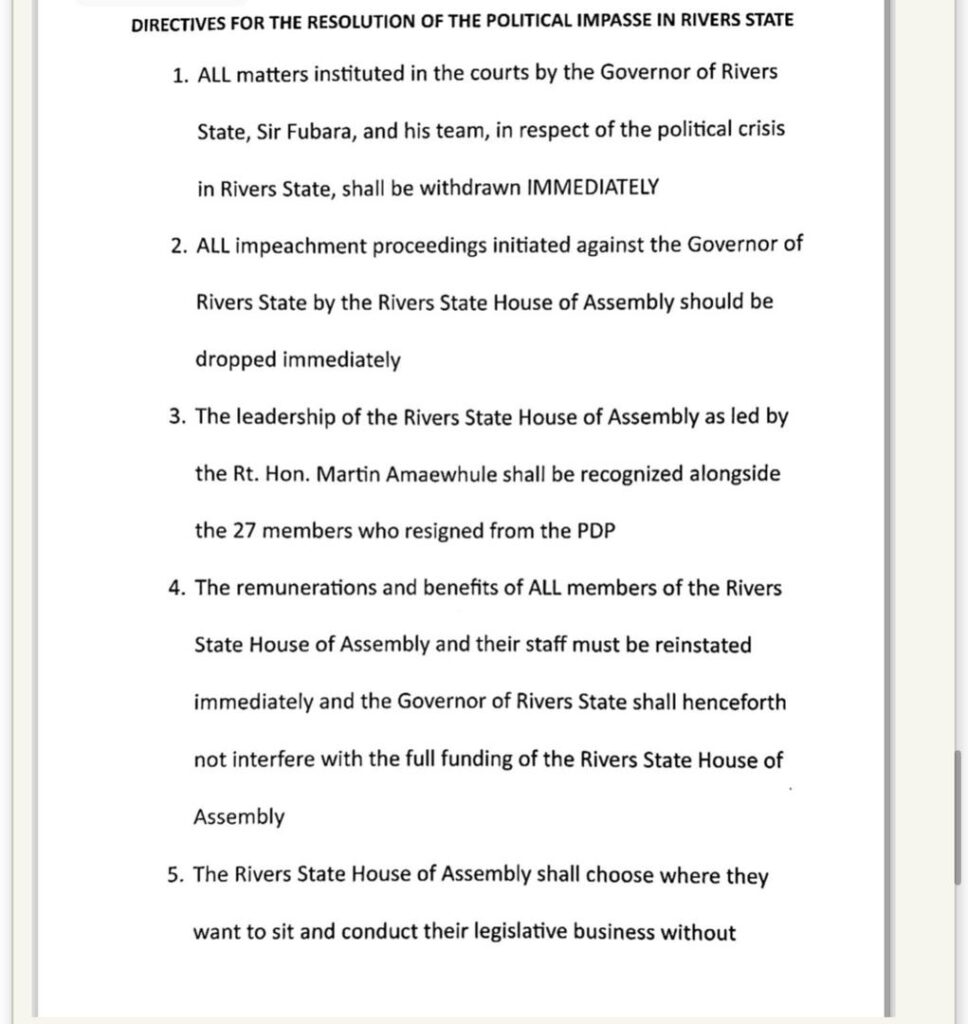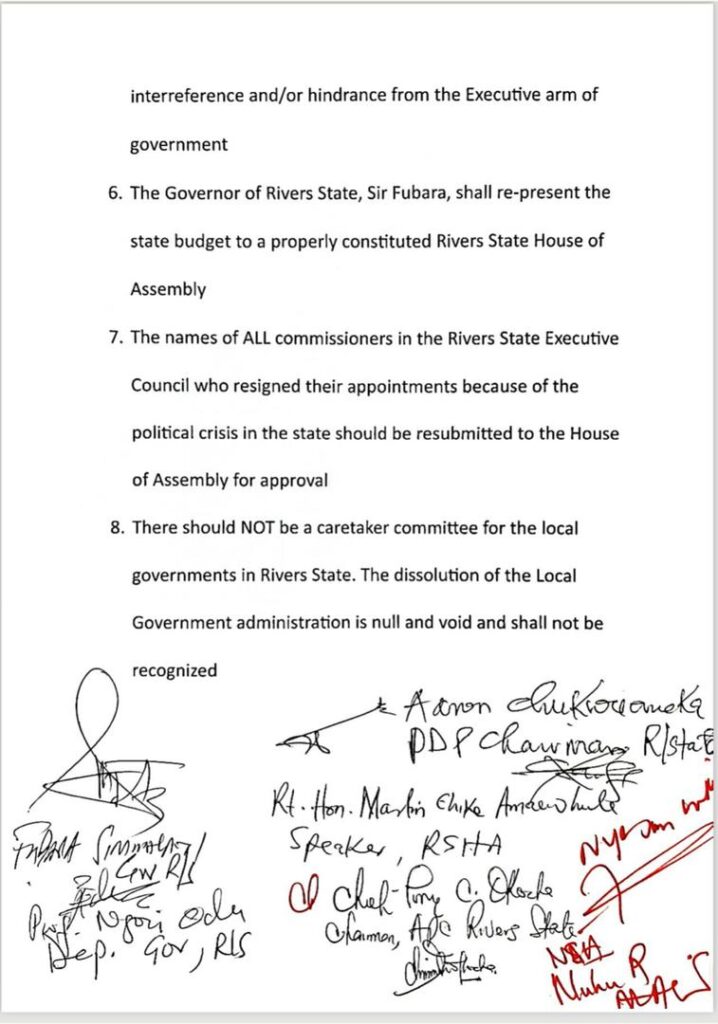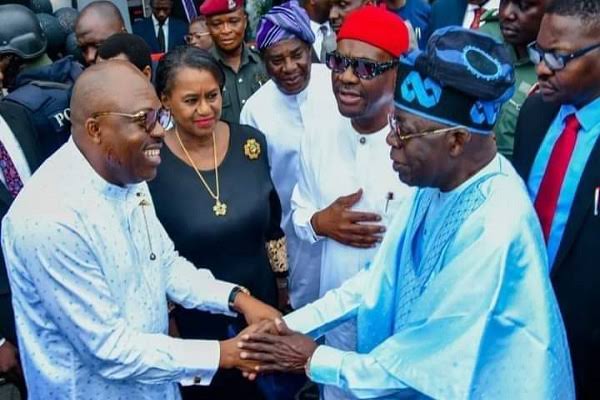Fubara’s Broken Promises – How Rivers’ Political Crisis Escalated into a National Emergency
The unfolding political crisis in Rivers State has taken a dramatic turn, morphing from a state-level dispute into a full-blown national emergency. At the heart of the turmoil is Governor Siminalayi Fubara’s alleged failure to uphold an eight-point peace agreement brokered by President Bola Ahmed Tinubu in 2023.
Fubara, who ascended to power with the backing of his predecessor, Nyesom Wike, was expected to maintain political stability in the oil-rich state. However, a deepening rift between the two leaders has paralyzed governance and led to the declaration of emergency rule—a decision with far-reaching implications for democracy and federal governance in Nigeria.
The Eight-Point Agreement: A Broken Truce
Following a heated power struggle between Fubara and Wike’s loyalists in the Rivers State House of Assembly, President Tinubu intervened in late 2023, urging both factions to sign an eight-point peace agreement. The terms of the agreement were designed to restore order, prevent an impeachment crisis, and ensure smooth governance in Rivers.


However, months after signing the document, Fubara allegedly failed to implement any of its provisions. This inaction reignited tensions, leading to renewed confrontations between the governor and the Assembly, many of whose members remain loyal to Wike. The deadlock brought governance in the state to a standstill, prompting fears of a constitutional crisis.
From State Crisis to National Emergency
With political instability persisting, President Tinubu declared a state of emergency in Rivers State. The emergency measures included:
- The suspension of Governor Fubara, his deputy Ngozi Odu, and all elected members of the Rivers State House of Assembly for six months.
- The appointment of retired Vice Admiral Ibok-Étè Ibas as the sole administrator of Rivers State.
- The justification of the decision based on prolonged political instability, constitutional violations, and security concerns.
What began as a political dispute in Rivers has now transformed into a matter of national concern. The emergency rule, unprecedented in Nigeria’s democratic era, has sparked debate over executive authority, constitutional integrity, and the role of federal intervention in state affairs.
The Political Fallout
The declaration has drawn mixed reactions. While some argue that Tinubu’s move was necessary to prevent a complete breakdown of governance, others view it as a dangerous precedent—one that could be weaponized in future political disputes across the country.
Critics warn that emergency rule, rather than resolving the crisis, may further deepen political divisions. If reconciliation efforts fail, Rivers could become the epicenter of a prolonged power struggle, with wider implications for Nigeria’s fragile democracy.
The Road Ahead
As the Senate and House of Representatives deliberate on the state of emergency, the nation waits to see whether diplomatic efforts can resolve the crisis before the six-month suspension period elapses. If Fubara and his allies can rebuild trust and negotiate a way forward, there may be a chance to lift the emergency rule before its full term.
However, if the conflict remains unresolved, Rivers risks further instability, and Nigeria’s political landscape could face lasting repercussions. For now, the future of governance in Rivers—and the credibility of democratic institutions nationwide—hangs in the balance.





















